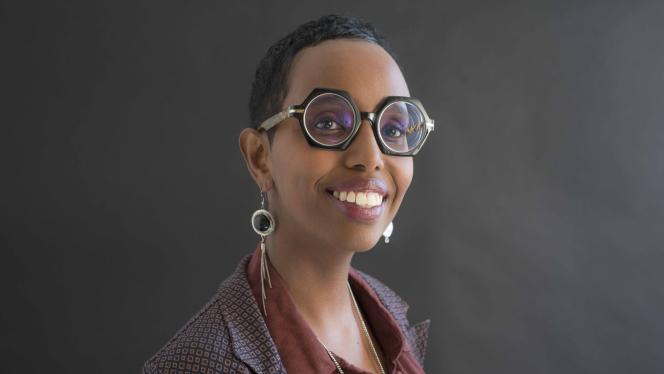Tuesday 29 October 2024
Reflecting on Igiaba Scego’s literary activism

The work of Somali-Italian writer Igiaba Scego provides us with a fresh and critical lens on the interconnected histories of Italy and Somalia, and beckons toward more equitable futures
The first time I encountered the work of Somali-Italian writer Igiaba Scego, I was studying in the US at Rutgers University, having moved from Italy to pursue a PhD in comparative literature. For a year, I had immersed myself in the writings and theories of postcolonial scholars and authors—from Edward Said to Franz Fanon, and from Tsitsi Dangarembga to Jamaica Kincaid. These writers delve into the experience and legacies of centuries of colonial domination under the British and French empires in enthralling prose. Yet, the fact that Italy, my country of birth, had also oppressed people and colonised territories was not a topic covered in my high school education as part of the national curriculum, nor was it discussed during my studies in the US where I was introduced to colonialism and decolonisation.
Encountering Somali-Italian writer Igiaba Scego’s work was a revelation for me. I realised that her books and cultural activism were a wake-up call to finally engage, both nationally and globally, in some very important conversations that had been avoided for too long—conversations about Italy’s and Somalia’s intertwined histories, contemporary migrations, and new ways of fostering a sense of belonging across cultures and languages.
Igiaba Scego has been at the forefront of these discussions since the early 2000s. By narrating her own experiences and those of the Somali-Italian community, Scego’s writing underscores the importance of reckoning with the past to envision a more equitable future. Born in Rome in 1974 after her parents fled Somalia following Siad Barre’s coup d’état, Scego feels deeply rooted in Rome—declaring that she has “always felt Roman more than Italian”. She has authored several novels, short stories, and essays, and her work has reached audiences beyond Italy through translations into English and other languages. Her most recent memoir, Cassandra in Mogadishu (2023), is a multigenerational narrative and a tribute to the Somali community, presented in the form of a letter addressed by the narrator to her niece Soraya.
In the afterword, Scego explains that the strongest impulse behind her writing has been “the urgency to understand the story of my family—multifaceted, diasporic, and traversed by a dictatorship, a never-ending war, and multiple migrations”. Narrating this story has also been a means of breaking the silence. We can interpret this ambition in two interconnected ways: firstly, Scego refuses to be silenced as a Black woman in a country that continues to marginalise non-white voices. Simultaneously, she encourages her readers not to remain silent about Italy and Somalia’s intertwined histories. This call for historical awareness is particularly crucial today. As thousands of people continue to traverse the Mediterranean in attempts to reach southern Europe’s shores, Scego’s work traces the connections between contemporary migrations and the complex relationships between Somalia and Italy. Thus, her writing bridges the past and the present, advocating for a future in which mobility and border-crossing are not privileges reserved for a few.
Having lived in Rome all her life, Scego feels it is “the only fixed point in a family always on the move.” This physical stability, rooted in place, enables her to navigate languages and cultures as a constant amidst a family dispersed across the globe. In the first chapter of Cassandra in Mogadishu, she explores her role as a storyteller and translator—of languages, cultures, and emotions alike. Writing in Italian, she reconstructs the fragmented identities of her diasporic family using a language that has historically symbolised oppression and colonisation, yet has also become “the language that makes us whole.” In this way, her writing aims to transcend cultural boundaries by traversing the languages that have shaped her, creating an intermediate space that is often uncomfortable yet fertile ground for stories of hope.
Scego’s literary and cultural influences reflect her hybrid identity and intellectual curiosity. She draws inspiration from Brazilian literature and musical traditions, admires the autobiographical explorations of James Baldwin and bell hooks, and finds resonance in the works of contemporary writers on migration as well as in classical literature. Consider Cassandra in Mogadishu, whose title pays homage to the Greek mythological figure Cassandra, the storyteller whose prophecies were doomed never to be believed. Like a modern Cassandra, Scego’s writing weaves together the threads of multiple stories and repairs narrative and historical ruptures. She begins with the understanding that to recompose is to comprehend, and to name is to imbue meaning into something that appears elusive.
Indeed, through her writing, she seeks to capture the concept of Jiro—a word that encapsulates the experiences of her family and the Somali people as a whole. This is how she defines it in the first chapter of the book:
Jiro literally means ‘sickness’ in Somali. Any dictionary, even Google Translate, will give you the same definition.
But, for us, Jiro is a much more expansive word. It speaks about our wounds, our pain, and our post-traumatic, postwar stress.
Jiro is our broken heart. The precarious balance of our life between hell and the present.
For Scego, the Jiro represents the sensation of being suspended in the diaspora, while searching for emotional and psychological tools to address what has been shattered by history. It is only through writing and storytelling that she discovers these tools. In this regard, it is significant that Cassandra in Mogadishu is narrated in the form of a letter to her young niece—a gift intended for future generations of Somalis. Without the process of excavation, memory, and oral history inherent in autobiographical writing, finding a remedy for the Jiro would be impossible. Narrating the story of her family and the Somali diaspora marks the initial step towards healing.
Scego’s novels, short stories, and essays demonstrate the transformative power of literature in reflecting on migration and displacement, articulating experiences of trauma, and charting paths towards new forms of community. This endeavour originates in literature but extends into society, politics, and education. Indeed, Scego’s cultural activism has led to the creation of children’s books and regular contributions to public events and educational initiatives.
I have been reading her work for over a decade now, and with each new publication, I am reminded that healing the wounds of the past requires understanding one’s position, opening oneself to others, and actively working towards constructing more equitable and just futures.
--






